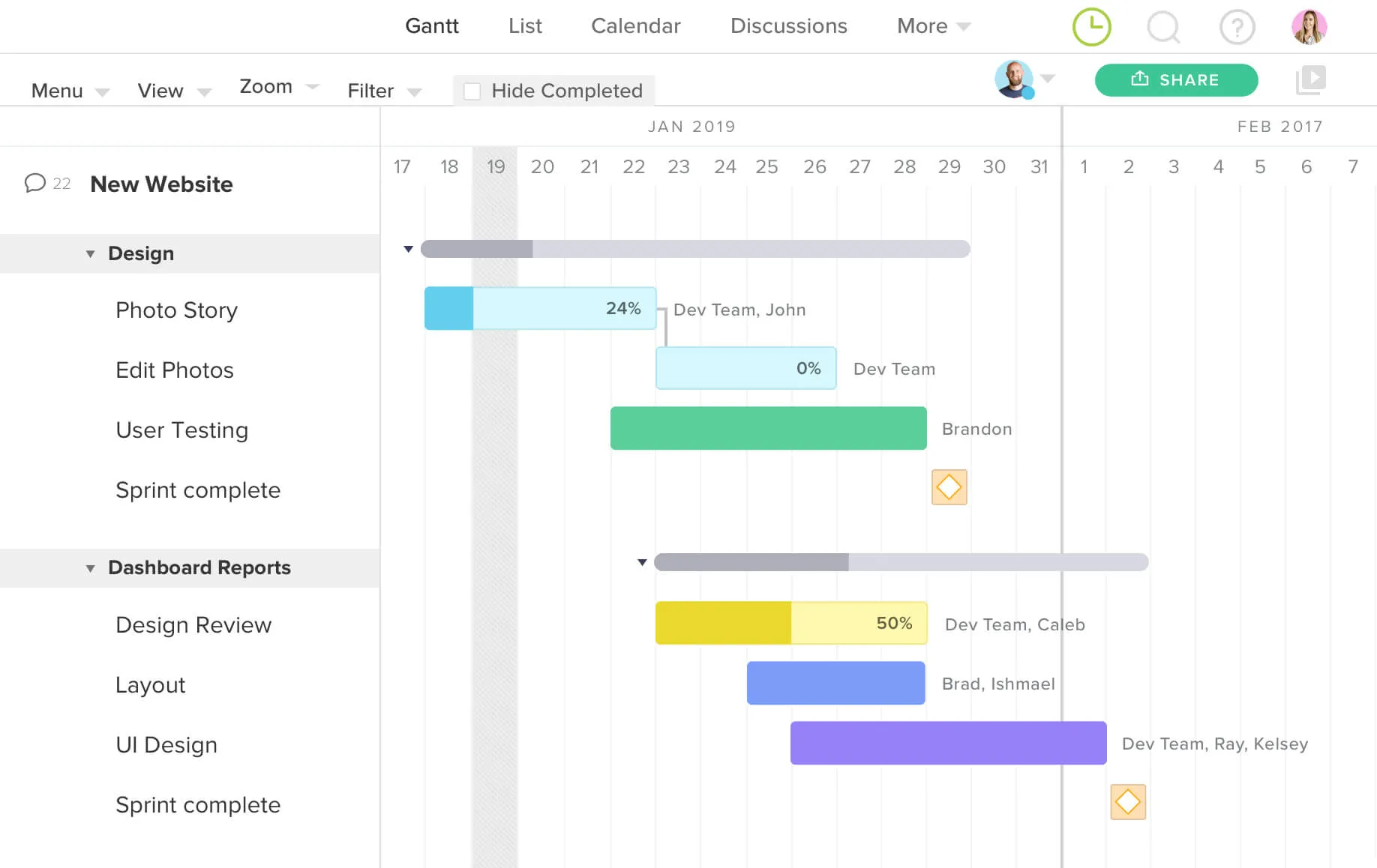New!
Still juggling construction schedules in spreadsheets? Meet TeamGantt’s Construction Edition.
Book a demo
There's no doubt that there are plenty of project management resources out there for you to pick up. But what are the best books, blogs, Twitter accounts, tools, and resources you should turn to? Don’t worry, we’ll get there!
But you should also keep in mind that there are a lot of other factors to take into account when learning. We’re not talking just about project management here. We’re talking about other disciplines, industry-specifc news and developments, client news, and more.
For example, as a digital project manager, I do my best to keep up on design, development, technology, and whatever else might come along and affect the digital/web industry, while also making sure to know what my clients’ businesses are up to.
So where do I turn for all the resources? Here’s a handy list that could help you:
If you’re not on Twitter, go ahead and join. There are amazing resources, links, and conversations posted all day, every day. There are plenty of incredibly smart people to follow, but this list is a good start. Plus, you can follow some great hashtags, including #pmot, #pmchat, #dpm, #webpm, and more. Give it a shot—you will not be let down.
Easy drag and drop features with templates for faster scheduling. Plan a project in minutes, collaborate easily as a team, and switch to calendar and list views in a single click.
Create your free plan
There is no better way to learn about process, practice, and people than while you’re in the thick of it. As a PM practitioner, you should look at every day—every meeting, every conversation—as an opportunity to learn.
Think back at the work you’ve done, and you’d probably be able to make a sizable list of the things you’ve learned while on the job. Maybe you’re just starting out or your list isn’t as long as you’d like it to be. That’s great—check out the recommendations below, and continue to develop as a strong professional project manager.
If your projects start with research—or if you have the opportunity to do your own research—you will find that it is full of learning opportunities.
When you dig into research, review previous studies and conversations, dig through documentation and analyses, and ask questions to truly understand what makes a client organization successful. You will learn a ton about how you can better manage your projects because research yields insights about management, the construction of business goals, and your project’s application to those goals.
If you have the opportunity, participate in stakeholder interviews. They can be incredibly eye-opening, as you can learn about everything from business processes to corporate hierarchies, to detailed market-research findings and firsthand, deeply personal stories. Each interview can be rich with information to be applied to our projects and also throughout your career.
Not sure where to start with an interview? Questions like these can spark unique and informative conversations with your potential on-the-job teachers:
Bottom line: When you ask the right questions of your client, you’ll build a stronger knowledge base about their business and how your work can help them. And when you can also find a nugget that follows your own interests, that’ll make for a conversation that benefits both your project work and your own education. Double win!
Another great way to learn is through necessity. If you have an opportunity to get your hands dirty and contribute to a project deliverable do it! Don’t be nervous about messing up—ask the right person on your team for guidance and mentorship.
You’ll go through critiques, questions, and revisions, and you’ll gain a ton of knowledge about how the deliverables you schedule are produced and the amount of work that goes into them. Plus, throwing yourself into your work and learning on the job can be frustrating. But learning a new skill or new software feels rewarding and empowering.
One of the greatest benefits of working with a team is having access to knowledge outside of my area of expertise. As a project manager, you will have learned so much about your work and your industry through your project teammates.
If you ever have a question about a technique or deliverable related to the project, just ask someone. Being inquisitive and sharing information on a team not only improves capability within a team, it builds trust.
Easy drag and drop features with templates for faster scheduling. Plan a project in minutes, collaborate easily as a team, and switch to calendar and list views in a single click.
Create your free plan
No matter what you do or where you’re employed, there are always opportunities to learn. Try looking outside your role and keeping up-to-date with business news, trends, and blogs.
Nothing is more valuable, however, than closely observing situations, asking questions, and finding new learning opportunities during your regular 9-to-5. It can make the difference between feeling like you’ve got a job versus building a career.
Let’s face it, we all look forward to retirement. But if your career is successful in that you’re constantly learning, maybe we should consider retirement as graduation.
Learn how easy project planning can be with TeamGantt. Create your first gantt chart for free.